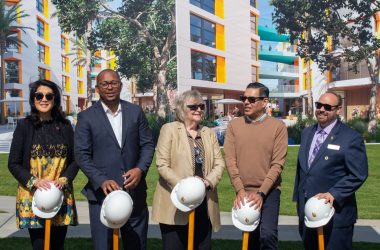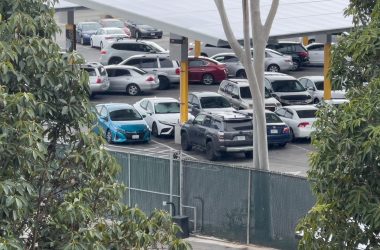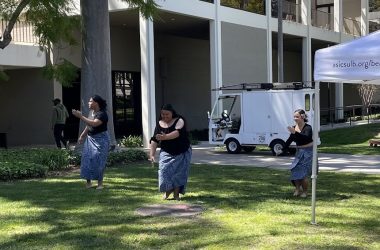Cal State Long Beach students were asked by city leaders Thursday to increase their civic participation outside of campus.
Students, staff and faculty gathered at the College of Business Administration building on Thursday to discuss with Long Beach City Council members ways students can contribute to the community.
Council members all agreed that the lack of student presence in the community has created a gap between CSULB and the rest of Long Beach.
“[The city and the university] must work in partnership because [CSULB] does impact the surrounding neighborhoods,” said fifth district Councilwoman Gerrie Schipske.
CSULB has had its share of public attention from the community. In 2007, CSULB students protested for more street lighting on Atherton Street after cases of sexual assault were reported.
Third district Councilman Gary DeLong reminded the panel audience that because students’ efforts were consistent, the city was able to find funding to install more street lights. Among the student protestors was current Associated Student Inc. President Chris Chavez.
“It’s always a source of pride for me going down Bellflower to see that there are lights there,” he said.
Chavez said he recognizes that CSULB needs to continue making efforts in grabbing the city’s attention.
“The last time we had a group of city council members come on campus was two years ago,” he said. “[ASI] really need to make sure we are building bridges between the university and the city now. The connection has kind of weakened a little bit and we really need to start working on it more now.”
Chavez said he has heard that some students have sought help from city leaders in the past but were turned away. Chavez promised that he will do his best to make sure students seeking help from City Council will no longer be refused.
“We welcome participation and we want to see your faces when we are deliberating public policies because it does affect all of you,” Schipske said.
Students have many opportunities to make a difference, Chavez said.
“Students need to start showing up to meetings and be informed,” he said. “But one of the biggest challenges is to inform the students well of the issues.”
Chavez said students can start participating in community-related issues by voting. Though it’s been stressed before, DeLong said students are the lowest voting population.
“A lot of the time, people are left out and are upset with the outcome, but have never been involved in the process of [resolving the issues],” said Councilman Dee Andrew’s chief of staff, John Edmond.
Schipske said that while it is important for those who can vote to do so, the voting process is a “two-way street” and those campaigning must include voters of all ages.
“[Candidates] need to encourage your participation, as well as talk about the issues that are important to you, while you have the responsibility to register to vote,” she said.
Schipske also challenges the audience to hold elected officials accountable for their actions.
Junior Sonya Babayan said the panel discussion inspired her to be more vocal within the community.
“I definitely want to go down to city council now and really let them know how I feel about certain issues, like the budget cuts,” Babayan said.
Chavez said he hopes to invite more city officials to campus to speak with students during the school year. Chavez also urged students to speak up and attend meetings to remain informed.
“Those who show up make the decisions,” he said, “and it’s way overdue for students to start speaking up.”
City council members who attended Thursday’s discussion also included Robert Garcia and Tonia Reyes Uranga.



